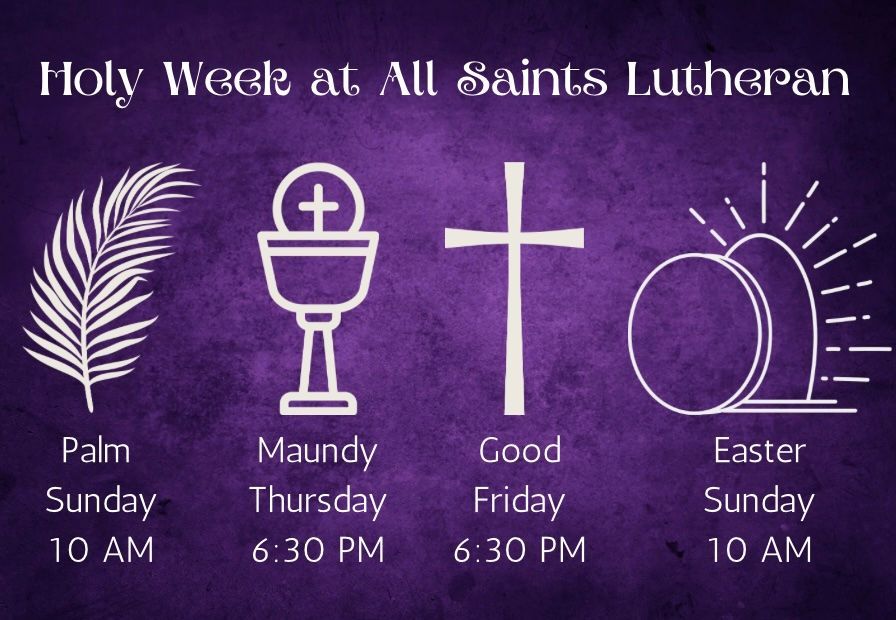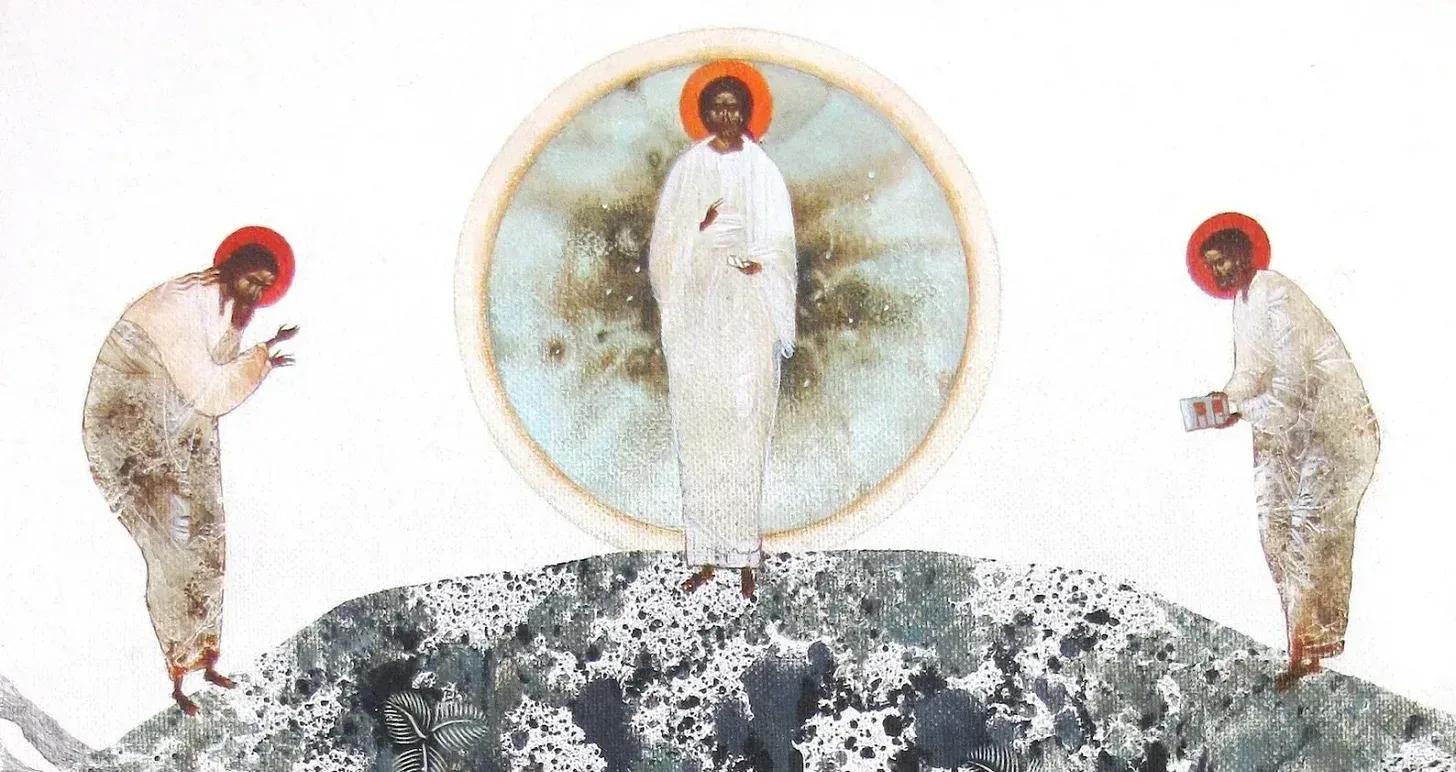Sermon for the Third Sunday in Lent, March 3, 2024
I have a question for you:
“Can men be good pastors?”
Laura Robinson,
a PhD candidate in New Testament
at Duke Divinity,
asked this question on social media.
You can imagine the response.
Well,
as a man who,
after sensing a calling,
waited 10 years to finish a bachelor’s degree,
worked for 3 years at getting a Masters of Divinity,
spent a year as a pastoral intern,
served two separate congregations
as a Synodically authorized minister,
met the requirements of our denomination
and was ordained
to receive your call to be a pastor,
a role I have held for 2 ½ years,
well,
I really, really hope so.
Robinson goes on,
“It’s weird people aren’t asking this.
I think they definitely can [be],”
she say,
phfew—
“but realistically,
the deck is very much stacked against them
in a culture that encourages them
to think of themselves
as the heirs apparent
to money, power, and sex
instead of a cross.”
Ouch.
I guess,
given our track record,
this is a very good question.
Quick on the heels of the #MeToo movement
was the #ChurchToo movement,
wherein a great number of women
and even a number of men,
felt empowered to speak out
about the abuse they had suffered
at the hands of clergymen.
In one of my first history classes in college,
the professor told us to remember the adage
“power corrupts,
and absolute power
corrupts absolutely.”
And in short order,
as we moved through our course,
without fail,
every movement,
every leader,
every ideology,
no matter how righteous,
how just,
how altruistic,
once they gained any amount of power,
it was almost immediately
wielded over and against
some other group,
inflicting the same level of anger,
suffering,
and oppression
from which the now ruling group
had fought tooth and nail to escape.
And this is even true
of the Church.
Christians went from being the victims of Empire
to being the Empire.
Protestants went from being persecuted
by the Churches in Europe
to being witch-hunting, native-murdering
slave owners in the new world.
This begs an expansion of Robinson’s question;
“Can Christians be trusted with power?”
In our Gospel reading for today,
Jesus marches into the Temple in Jerusalem
and disrupts the whole franchise.
Jesus made a whip of cords
and drove out all the cattle and sheep.
Then he turns,
flips over tables,
and dumps out all the moneychangers’ coins.
He shouts at those selling doves
to get them all out,
to stop making his Father’s house
a marketplace.
Now,
Jesus seems to have planned all this,
because the passage begins,
“The Passover of the Jews was near,
and Jesus went up to Jerusalem.”
Going up to Jerusalem
was what you did at Passover,
and it’s pretty likely
that this wasn’t Jesus’ first trip
to the temple.
Jesus wouldn’t have been surprised
that there was a marketplace
in the Temple.
Roman coins,
the currency of the realm,
had to be exchanged
before you paid the Temple tax,
because you couldn’t bring the image
of another god into the Temple
and Roman coins all bore the image of Caesar,
who called himself the son of god,
and demanded to be worshiped as such.
Further,
not everyone raised their own animals
and making the sacrifice
meant purchasing the offering,
and purchasing it at the Temple
meant you didn’t have to travel with an animal.
So,
if Jesus wasn’t surprised
to find a marketplace at the Temple,
especially a marketplace
that helped folks gain access
to the place God had promised to meet them,
what was Jesus so upset about?
The crowd in the Temple
ask Jesus basically the same thing.
“What sign can you show us
for doing this?”
Said more plainly,
they asked,
“Hey, Man!!
What gives?
We are out here trying to do the Lord’s work,
and you come in and wrecked the place.
What do you have to say for yourself?”
Jesus speaks a parable
and just makes matters worse.
“Destroy this temple,
and in three days
I will raise it up.”
You can almost hear them snickering.
“Listen,
this temple has been under construction
for 46 years
and it ain’t done yet,
and you’ll raise it up in three days?”
And then,
you can almost hear Morgan Freeman
as John’s gospel switches to the narrator’s voice,
“But Jesus was speaking of the temple of his body.
After he was raised from the dead,
his disciples remembered
that he had said this;
and they believed the scripture
and the word Jesus had spoken.”
Now,
it’s probably important to note
that in the minds
of those on the temple grounds that day,
especially those
who followed Jesus there
thinking he just might be the messiah—
in the minds of all those present
the messiah was coming
to make this temple
the seat of power.
The messiah would come,
and throw off Roman oppression,
and sit on the throne of his father David.
But Jesus claims a Father greater than David.
Jesus says his father’s house
is not the house of David,
but the very dwelling place
of the God of Abraham, Isaac, and Jacob.
And yet,
Jesus doesn’t come to claim power,
to sit on the throne of David,
and lead a revolt against Roman occupation.
Jesus comes to divest power,
to give away the sheep,
and cattle, and birds.
To scatter the coins
of both the Emperor
and the Temple.
To give away authority
over even his very body
to the ones who would tear it down
and to the One who would raise it up.
Jesus knew
what my history professor knew:
Power corrupts,
and absolute power corrupts
absolutely.
Jesus did not come
to establish an empire,
to sit on a throne,
to accrue money,
to wield power,
or exploit his body.
Jesus came to show us
what to do with money
and power
and our very lives.
We are to give them away.
We are to spend our money,
wield our power,
and employ our bodies
in service to God
and to our neighbors,
trusting that the One who raised Jesus from the dead
will raise us up too.
Can men be good pastors?
Can Christians be trusted with power?
Yes,
but it requires that we understand
that we are heirs to the cross
because power corrupts.
Our sister pastors know this,
because power has been wielded against them.
Our LGBTQIA+ pastors know this,
because power has been wielded against them.
And our work
is simply that of all those baptized
into the priesthood of all believers.
Our work is to take up the cross
and follow Jesus.
To give away money
in solidarity with the poor,
to give away power
in solidarity with the powerless,
and even our very lives
in solidarity with the dying.
Culture warriors demand power
and the entitled desire impunity.
But we proclaim Christ crucified:
a stumbling block to Christian Nationalism
and foolishness to the patriarchy.
The very power of God
given away
is what makes us incorruptible.
Can men be good pastors?
Yes, with boundaries and accountability.
Can Christians be trusted with power?
Yes, with humility and deference,
with divestment and solidarity,
when we, like Jesus,
wield power to empower others,
and not ourselves.
There is no such thing as a Christian nation.
Neither are men inherently bad pastors.
We are heirs to a cross
and not a crown,
to poverty
and not privilege,
to self-giving love
and not self-loving power.
Power corrupts,
and absolute power corrupts
absolutely.
But Love redeems,
and absolute Love redeems
absolutely.
Amen.










